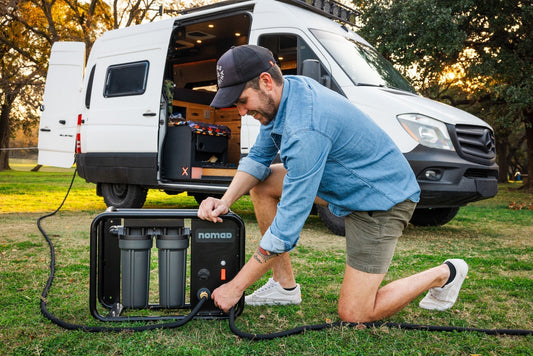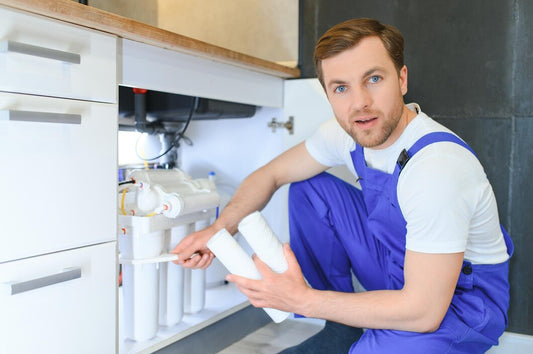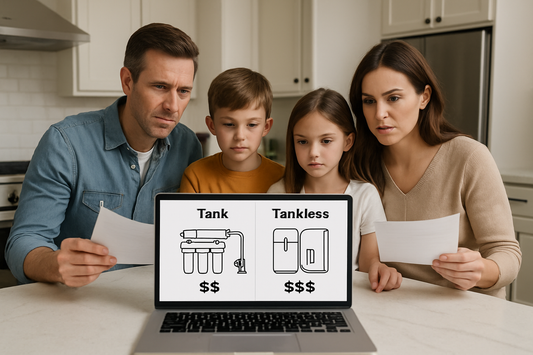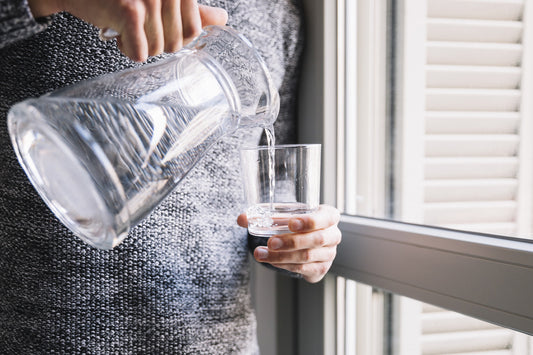The simple truth about water filter replacement: Most equipment failures stem from one overlooked maintenance task. Whether you're running a commercial kitchen or maintaining home appliances, replacing water filter cartridges on schedule can prevent 90% of water-related equipment breakdowns and save thousands in repair costs.
Why Water Filter Replacement Matters More Than You Think
Water filtration isn't just about water quality—it's about protecting your investment. From coffee makers to ice machines, equipment exposed to unfiltered water faces scale buildup, sediment damage, and premature failure. Regular water filter replacement acts as your first line of defense against these costly problems.
The Hidden Costs of Delayed Filter Replacement
When water filter cartridges reach capacity, they stop protecting your equipment effectively. Scale begins accumulating on heating elements, sediment clogs internal components, and water quality degrades rapidly. A $30 filter replacement can prevent a $3,000 equipment replacement.
How Often Should You Replace Water Filter Cartridges?
Standard Replacement Schedule:
- High-use commercial equipment: Every 3-4 months
- Moderate residential use: Every 6 months
- Light residential use: Every 9-12 months
- Well water applications: Every 3 months (due to higher sediment)
However, usage patterns matter more than calendar dates. A busy restaurant may need monthly replacements, while a home coffee maker might go 8 months between changes.

Image by hryshchyshen
Factors That Affect Replacement Frequency
Water Quality Conditions:
- Hard water areas require more frequent changes
- Well water with high iron content accelerates filter degradation
- Municipal water with high chlorine levels impacts carbon filters faster
Equipment Usage Patterns:
- Daily commercial use demands quarterly replacement
- Intermittent use extends filter life significantly
- Peak season operations may require accelerated schedules
Signs Your Water Filter Needs Immediate Replacement
Visual and Performance Indicators
Obvious Red Flags:
- Reduced water flow or pressure
- Unusual tastes or odors in beverages
- Visible sediment in water or ice
- Scale buildup on equipment surfaces
- Equipment running louder than normal
Equipment-Specific Warning Signs:
- Coffee makers: Bitter taste, longer brew times, visible mineral deposits
- Ice machines: Cloudy ice, reduced ice production, unusual noises
- Soda dispensers: Flat beverages, inconsistent carbonation
When to Replace Immediately (Don't Wait)
Certain conditions require immediate filter replacement regardless of schedule:
- Water flow drops below 50% of normal rate
- Any metallic or chemical taste in water
- Visible particles in filtered water
- Equipment error codes related to water flow
Step-by-Step Water Filter Cartridge Replacement Process
Before You Begin: Safety and Preparation
- Turn off water supply to the filtration system
- Release system pressure by running water until flow stops
- Gather replacement cartridges and basic tools (wrench, towels)
- Check filter model numbers against your equipment specifications
Universal Replacement Steps
For Auto Shut-Off Filter Heads:
- Remove old cartridge - system automatically stops water flow
- Inspect housing for sediment buildup
- Install new cartridge with proper alignment
- Hand-tighten until snug (avoid over-tightening)
- Restore water supply and check for leaks
For Manual Systems:
- Press release button to remove cartridge
- Clean filter housing thoroughly
- Apply food-grade lubricant to O-rings if needed
- Install replacement cartridge
- Ensure secure connection before restoring water flow
Post-Installation Checklist
- Run water for 2-3 minutes to flush new filter
- Check all connections for leaks
- Test equipment operation
- Mark calendar for next replacement date
- Keep spare cartridges in inventory

Image by Gray StudioPro
Choosing the Right Replacement Water Filter Cartridges
Understanding Cartridge Specifications
Capacity Ratings:
- 25,000 gallons: Light residential use
- 35,000 gallons: Moderate commercial applications
- 55,000 gallons: Heavy-duty commercial systems
Filtration Types:
- Sediment filters: Remove particles and debris
- Carbon filters: Eliminate chlorine, odors, and taste issues
- Scale reduction: Prevent mineral buildup (essential for heating equipment)
Equipment-Specific Filter Selection
Coffee and Espresso Equipment: Scale reduction cartridges are essential. Choose filters specifically designed for brewing equipment to prevent mineral buildup on heating elements and ensure consistent extraction.
Ice Machines: Focus on sediment and scale removal. Avoid scale reduction filters for soda dispensers as they can cause excessive foaming and flat beverages.
Universal Applications: For equipment requiring both sediment and taste improvement, multi-stage replacement cartridges provide comprehensive protection.
Brand Transitions: From Legacy to Current Solutions
While established brands like Pelican Water Systems have long been trusted names in filtration, their availability has become inconsistent in recent years. Many facilities are now switching to reliable alternatives like Crystal Quest, which offers superior compatibility and consistent supply chains.
Making the Transition:
- Verify cartridge dimensions match existing housings
- Confirm filtration capacity meets your equipment needs
- Consider upgrading to higher-capacity filters during replacement
- Maintain spare inventory to avoid emergency situations
Cost-Effectiveness of Regular Filter Replacement
Investment vs. Risk Analysis
Annual Filter Costs:
- Residential: $120-240 per year
- Small commercial: $480-960 per year
- Large commercial: $1,200-2,400 per year

Image by wertinio
Potential Savings:
- Equipment repair avoidance: $2,000-15,000 annually
- Extended equipment lifespan: 150-300% increase
- Energy efficiency maintenance: 10-25% utility savings
- Product quality consistency: Reduced waste and customer complaints
ROI Calculation Example
A commercial ice machine costing $8,000 typically lasts 7-10 years with proper filtration. Without regular filter replacement, the same machine may fail within 3-4 years. Annual filter costs of $400 prevent premature replacement costs of $8,000—a 2,000% return on investment.
Professional Installation and Maintenance Support
For complex filtration systems or high-stakes commercial applications, professional installation ensures optimal performance. Expert technicians can:
- Assess water quality conditions
- Recommend optimal replacement schedules
- Identify potential system improvements
- Provide ongoing maintenance support
Browse our complete selection of replacement cartridges or contact our technical team for personalized recommendations based on your specific equipment and water conditions.
Frequently Asked Questions
Q: How do I know if my filter is compatible with different brands of equipment?
Most standard filter housings use universal threading, but always verify dimensions and connection types. Check your equipment manual or consult with technical support to ensure proper fit and performance.
Q: Can I extend filter life by cleaning the cartridge?
While some sediment pre-filters can be rinsed, most cartridges are designed for single-use replacement. Attempting to clean spent filters often reduces effectiveness and may introduce contaminants.
Q: What happens if I wait too long to replace my water filter?
Overdue filters stop protecting equipment effectively, allowing scale, sediment, and contaminants to reach critical components. This leads to reduced efficiency, higher energy costs, and eventual equipment failure.
Q: Should I replace all filters at once or stagger replacements?
For multi-stage systems, replace filters based on individual capacity and function. Sediment pre-filters typically need more frequent replacement than carbon or scale reduction stages.






